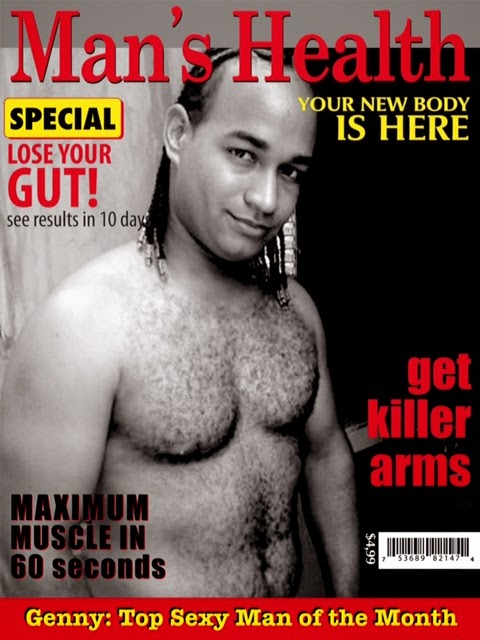 |
| FILE - In this June 25, 1945 picture, army doctors expose patients to malaria-carrying mosquitoes in the malaria ward at Stateville Penitentiary in Crest Hill, Ill. Around the time of World War II, prisoners were enlisted to help the war effort by participating in studies that could help the troops. A series of malaria studies at Stateville Penitentiary in Illinois and two other penitentiaries were designed to test antimalarial drugs that could help soldiers fighting in the Pacific. Shocking as it may seem, government doctors once thought it was fine to experiment on disabled people and prison inmates. |
ATLANTA (AP) -- Shocking as it may seem, U.S. government doctors once thought it was fine to experiment on disabled people and prison inmates. Such experiments included giving hepatitis to mental patients in Connecticut, squirting a pandemic flu virus up the noses of prisoners in Maryland, and injecting cancer cells into chronically ill people at a New York hospital.
Much of this horrific history is 40 to 80 years old, but it is the backdrop for a meeting in Washington this week by a presidential bioethics commission. The meeting was triggered by the government's apology last fall for federal doctors infecting prisoners and mental patients in Guatemala with syphilis 65 years ago.
U.S. officials also acknowledged there had been dozens of similar experiments in the United States - studies that often involved making healthy people sick.
An exhaustive review by The Associated Press of medical journal reports and decades-old press clippings found more than 40 such studies. At best, these were a search for lifesaving treatments; at worst, some amounted to curiosity-satisfying experiments that hurt people but provided no useful results.
Inevitably, they will be compared to the well-known Tuskegee syphilis study. In that episode, U.S. health officials tracked 600 black men in Alabama who already had syphilis but didn't give them adequate treatment even after penicillin became available.
These studies were worse in at least one respect - they violated the concept of "first do no harm," a fundamental medical principle that stretches back centuries.
"When you give somebody a disease - even by the standards of their time - you really cross the key ethical norm of the profession," said Arthur Caplan, director of the University of Pennsylvania's Center for Bioethics.
Some of these studies, mostly from the 1940s to the '60s, apparently were never covered by news media. Others were reported at the time, but the focus was on the promise of enduring new cures, while glossing over how test subjects were treated.
Attitudes about medical research were different then. Infectious diseases killed many more people years ago, and doctors worked urgently to invent and test cures. Many prominent researchers felt it was legitimate to experiment on people who did not have full rights in society - people like prisoners, mental patients, poor blacks. It was an attitude in some ways similar to that of Nazi doctors experimenting on Jews.
"There was definitely a sense - that we don't have today - that sacrifice for the nation was important," said Laura Stark, a Wesleyan University assistant professor of science in society, who is writing a book about past federal medical experiments.
The AP review of past research found:
-A federally funded study begun in 1942 injected experimental flu vaccine in male patients at a state insane asylum in Ypsilanti, Mich., then exposed them to flu several months later. It was co-authored by Dr. Jonas Salk, who a decade later would become famous as inventor of the polio vaccine.
Some of the men weren't able to describe their symptoms, raising serious questions about how well they understood what was being done to them. One newspaper account mentioned the test subjects were "senile and debilitated." Then it quickly moved on to the promising results.
-In federally funded studies in the 1940s, noted researcher Dr. W. Paul Havens Jr. exposed men to hepatitis in a series of experiments, including one using patients from mental institutions in Middletown and Norwich, Conn. Havens, a World Health Organization expert on viral diseases, was one of the first scientists to differentiate types of hepatitis and their causes.
A search of various news archives found no mention of the mental patients study, which made eight healthy men ill but broke no new ground in understanding the disease.
-Researchers in the mid-1940s studied the transmission of a deadly stomach bug by having young men swallow unfiltered stool suspension. The study was conducted at the New York State Vocational Institution, a reformatory prison in West Coxsackie. The point was to see how well the disease spread that way as compared to spraying the germs and having test subjects breathe it. Swallowing it was a more effective way to spread the disease, the researchers concluded. The study doesn't explain if the men were rewarded for this awful task.
-A University of Minnesota study in the late 1940s injected 11 public service employee volunteers with malaria, then starved them for five days. Some were also subjected to hard labor, and those men lost an average of 14 pounds. They were treated for malarial fevers with quinine sulfate. One of the authors was Ancel Keys, a noted dietary scientist who developed K-rations for the military and the Mediterranean diet for the public. But a search of various news archives found no mention of the study.
-For a study in 1957, when the Asian flu pandemic was spreading, federal researchers sprayed the virus in the noses of 23 inmates at Patuxent prison in Jessup, Md., to compare their reactions to those of 32 virus-exposed inmates who had been given a new vaccine.
-Government researchers in the 1950s tried to infect about two dozen volunteering prison inmates with gonorrhea using two different methods in an experiment at a federal penitentiary in Atlanta. The bacteria was pumped directly into the urinary tract through the penis, according to their paper.
The men quickly developed the disease, but the researchers noted this method wasn't comparable to how men normally got infected - by having sex with an infected partner. The men were later treated with antibiotics. The study was published in the Journal of the American Medical Association, but there was no mention of it in various news archives.
Though people in the studies were usually described as volunteers, historians and ethicists have questioned how well these people understood what was to be done to them and why, or whether they were coerced.
Prisoners have long been victimized for the sake of science. In 1915, the U.S. government's Dr. Joseph Goldberger - today remembered as a public health hero - recruited Mississippi inmates to go on special rations to prove his theory that the painful illness pellagra was caused by a dietary deficiency. (The men were offered pardons for their participation.)
But studies using prisoners were uncommon in the first few decades of the 20th century, and usually performed by researchers considered eccentric even by the standards of the day. One was Dr. L.L. Stanley, resident physician at San Quentin prison in California, who around 1920 attempted to treat older, "devitalized men" by implanting in them testicles from livestock and from recently executed convicts.
Newspapers wrote about Stanley's experiments, but the lack of outrage is striking.
"Enter San Quentin penitentiary in the role of the Fountain of Youth - an institution where the years are made to roll back for men of failing mentality and vitality and where the spring is restored to the step, wit to the brain, vigor to the muscles and ambition to the spirit. All this has been done, is being done ... by a surgeon with a scalpel," began one rosy report published in November 1919 in The Washington Post.
Around the time of World War II, prisoners were enlisted to help the war effort by taking part in studies that could help the troops. For example, a series of malaria studies at Stateville Penitentiary in Illinois and two other prisons was designed to test antimalarial drugs that could help soldiers fighting in the Pacific.
It was at about this time that prosecution of Nazi doctors in 1947 led to the "Nuremberg Code," a set of international rules to protect human test subjects. Many U.S. doctors essentially ignored them, arguing that they applied to Nazi atrocities - not to American medicine.
The late 1940s and 1950s saw huge growth in the U.S. pharmaceutical and health care industries, accompanied by a boom in prisoner experiments funded by both the government and corporations. By the 1960s, at least half the states allowed prisoners to be used as medical guinea pigs.
But two studies in the 1960s proved to be turning points in the public's attitude toward the way test subjects were treated.
The first came to light in 1963. Researchers injected cancer cells into 19 old and debilitated patients at a Jewish Chronic Disease Hospital in the New York borough of Brooklyn to see if their bodies would reject them.
The hospital director said the patients were not told they were being injected with cancer cells because there was no need - the cells were deemed harmless. But the experiment upset a lawyer named William Hyman who sat on the hospital's board of directors. The state investigated, and the hospital ultimately said any such experiments would require the patient's written consent.
At nearby Staten Island, from 1963 to 1966, a controversial medical study was conducted at the Willowbrook State School for children with mental retardation. The children were intentionally given hepatitis orally and by injection to see if they could then be cured with gamma globulin.
Those two studies - along with the Tuskegee experiment revealed in 1972 - proved to be a "holy trinity" that sparked extensive and critical media coverage and public disgust, said Susan Reverby, the Wellesley College historian who first discovered records of the syphilis study in Guatemala.
By the early 1970s, even experiments involving prisoners were considered scandalous. In widely covered congressional hearings in 1973, pharmaceutical industry officials acknowledged they were using prisoners for testing because they were cheaper than chimpanzees.
Holmesburg Prison in Philadelphia made extensive use of inmates for medical experiments. Some of the victims are still around to talk about it. Edward "Yusef" Anthony, featured in a book about the studies, says he agreed to have a layer of skin peeled off his back, which was coated with searing chemicals to test a drug. He did that for money to buy cigarettes in prison.
"I said 'Oh my God, my back is on fire! Take this ... off me!'" Anthony said in an interview with The Associated Press, as he recalled the beginning of weeks of intense itching and agonizing pain.
The government responded with reforms. Among them: The U.S. Bureau of Prisons in the mid-1970s effectively excluded all research by drug companies and other outside agencies within federal prisons.
As the supply of prisoners and mental patients dried up, researchers looked to other countries.
It made sense. Clinical trials could be done more cheaply and with fewer rules. And it was easy to find patients who were taking no medication, a factor that can complicate tests of other drugs.
Additional sets of ethical guidelines have been enacted, and few believe that another Guatemala study could happen today. "It's not that we're out infecting anybody with things," Caplan said.
Still, in the last 15 years, two international studies sparked outrage.
One was likened to Tuskegee. U.S.-funded doctors failed to give the AIDS drug AZT to all the HIV-infected pregnant women in a study in Uganda even though it would have protected their newborns. U.S. health officials argued the study would answer questions about AZT's use in the developing world.
The other study, by Pfizer Inc., gave an antibiotic named Trovan to children with meningitis in Nigeria, although there were doubts about its effectiveness for that disease. Critics blamed the experiment for the deaths of 11 children and the disabling of scores of others. Pfizer settled a lawsuit with Nigerian officials for $75 million but admitted no wrongdoing.
Last year, the U.S. Department of Health and Human Services' inspector general reported that between 40 and 65 percent of clinical studies of federally regulated medical products were done in other countries in 2008, and that proportion probably has grown. The report also noted that U.S. regulators inspected fewer than 1 percent of foreign clinical trial sites.
Monitoring research is complicated, and rules that are too rigid could slow new drug development. But it's often hard to get information on international trials, sometimes because of missing records and a paucity of audits, said Dr. Kevin Schulman, a Duke University professor of medicine who has written on the ethics of international studies.
These issues were still being debated when, last October, the Guatemala study came to light.
In the 1946-48 study, American scientists infected prisoners and patients in a mental hospital in Guatemala with syphilis, apparently to test whether penicillin could prevent some sexually transmitted disease. The study came up with no useful information and was hidden for decades.
The Guatemala study nauseated ethicists on multiple levels. Beyond infecting patients with a terrible illness, it was clear that people in the study did not understand what was being done to them or were not able to give their consent. Indeed, though it happened at a time when scientists were quick to publish research that showed frank disinterest in the rights of study participants, this study was buried in file drawers.
"It was unusually unethical, even at the time," said Stark, the Wesleyan researcher.
"When the president was briefed on the details of the Guatemalan episode, one of his first questions was whether this sort of thing could still happen today," said Rick Weiss, a spokesman for the White House Office of Science and Technology Policy.
That it occurred overseas was an opening for the Obama administration to have the bioethics panel seek a new evaluation of international medical studies. The president also asked the Institute of Medicine to further probe the Guatemala study, but the IOM relinquished the assignment in November, after reporting its own conflict of interest: In the 1940s, five members of one of the IOM's sister organizations played prominent roles in federal syphilis research and had links to the Guatemala study.
So the bioethics commission gets both tasks. To focus on federally funded international studies, the commission has formed an international panel of about a dozen experts in ethics, science and clinical research. Regarding the look at the Guatemala study, the commission has hired 15 staff investigators and is working with additional historians and other consulting experts.
The panel is to send a report to Obama by September. Any further steps would be up to the administration.
Some experts say that given such a tight deadline, it would be a surprise if the commission produced substantive new information about past studies. "They face a really tough challenge," Caplan said.















No comments:
Post a Comment
Note: Only a member of this blog may post a comment.